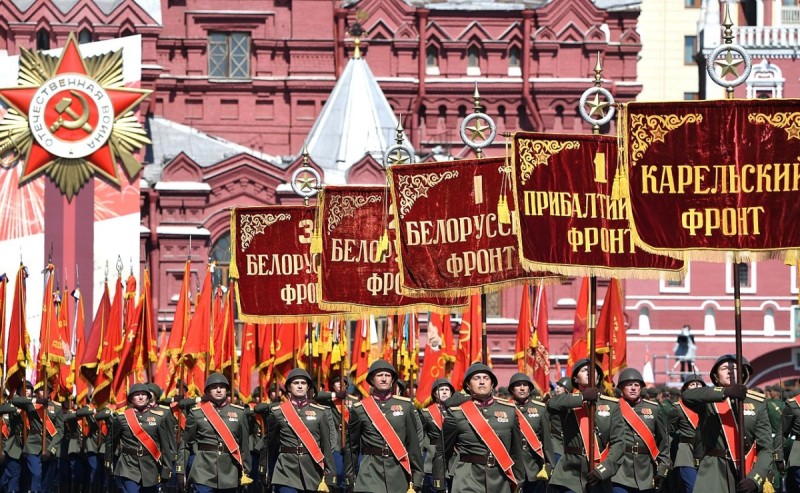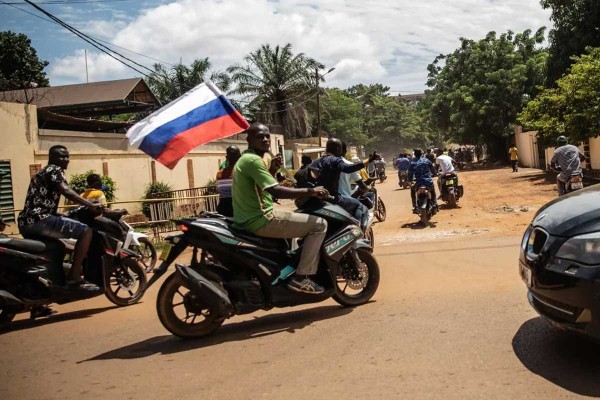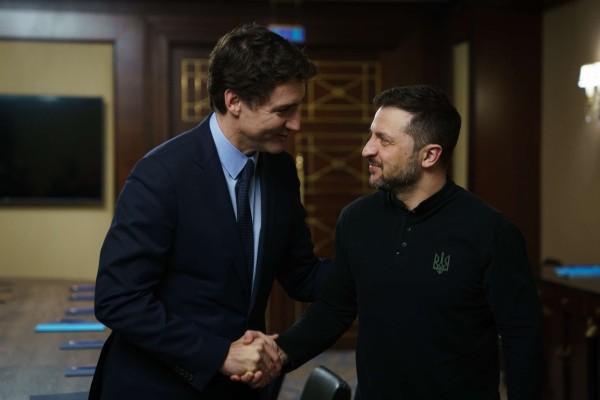The use and abuse of Russia’s ‘Great Patriotic War’
War mythology and the Kremlin’s great power ambitions continue to resonate with the wider Russian public. Why is this so?

Moscow Victory Day parade, 2020. Photo courtesy the Kremlin/Wikimedia Commons.
On May 9, Russians will celebrate the 80th anniversary of the end of the Second World War, or as they call it the “Great Patriotic War.” Leaders from around the world will attend the celebrations in Red Square, although Western politicians will be notably absent. Congratulating the Russians on their military victories is not something that many in the West are nowadays willing to do.
The original “Patriotic War” was that fought by Russia against France in 1812. The name reflected the belief that Napoleon’s defeat was a product of the general efforts of the entirety of the Russian population, who had demonstrated their patriotism by bitterly resisting the French invaders. Likewise, the title “Great Patriotic War” is highly significant. While the Communist Party and its leader Joseph Stalin liked to take credit for leading the Soviet people to victory over Nazi Germany, they had to admit that this was not something that they were able to do alone.
Thus in his victory speech of May 9, 1945, Stalin spoke of “the great sacrifices we made in the name of the freedom and independence of our Motherland, the incalculable privations and sufferings experienced by our people in the course of the war, the intense work in the rear and at the front… I congratulate you upon victory, my dear men and women compatriots! … Glory to our great people, the people victorious!” This was, in short, the people’s war, and likewise it was the people’s victory.
It is worth bearing this in mind in the context of widespread discussion of how the Great Patriot War has become a central element of state ideology under current Russian leader Vladimir Putin, and of how Putin has it to justify the war in Ukraine. For example, political scientist Sam Greene comments that Victory Day has “changed from a conversation about memorializing … into a more aggressive militaristic posture.” There is undoubtedly something to this, but at the same time it would be a mistake to view the commemoration of victory over Germany as some idea pulled by Putin out of a hat, or to view it as something imposed on Russian society from above. Instead, it has deep roots in the popular mentality.
Furthermore, the fact that the Russian state has instrumentalized Victory Day for its own political purposes, including justifying the war in Ukraine, begs an important question—why does this seem to be working? One cannot convince people of absolutely anything. If the parallels the Kremlin draws between the Great Patriotic War and current events prove convincing to people, there must be a reason.
When contemplating these issues, it is first necessary to note that the veneration of victory in the Great Patriotic War long predates Putin. Indeed, it was under his predecessor Boris Yeltsin that the Russian state constructed an enormous Victory Park and Museum of the Great Patriotic War in 1995 in order to celebrate the 50th anniversary of the end of the war.
Second, it is a mistake to view Russia as a society in which the state controls all political and social discourse. The state itself is not in fact a producer of ideas; rather, it coopts ideas generated by the Russian people themselves. French scholar Marlene Laruelle notes that ideology in Russia is a co-creation of the state and society. She comments that “Russian society… has not been ‘zombified’ by television propaganda, as is often claimed by Western commentators, because surveys show that Russians can detect fake news at about the same rate as Europeans. But the regime and society have co-created a vision of the world that is based on affect and resonates with people’s everyday experience, the social thickness of their world.” Thus the ideology surrounding the Great Patriotic War is not Putin’s creation. Rather it is something that the Russian state and the Russian people have constructed together.
One can see this by looking at the example of the popular Victory Day parades known as “Immortal Regiments,” in which Russians walk through their towns carrying pictures of members of their families who fought or died during the war. These were not an invention of the Russian state. The first Immortal Regiment March took place in the city of Tomsk in 2012 and was a local grassroots project. The concept rapidly gained popularity and spread elsewhere. It was only at that point that national politicians got involved. In short, the state co-opted an idea that arose from below.
If the state has done so, it is because it has realized that it is popular. Where it has now moved beyond what the people are pushing of their own accord is in attempting to associate the Great Patriotic War with the war in Ukraine by depicting the latter as a continuation of the former, as a renewed struggle against the evils of fascism.
This narrative appears to have some traction in Russian society, but arguably only because of mistakes committed by Russia’s opponents in Europe. This is not just a matter of neo-Nazi memorabilia on the fringes of Ukrainian society or in a handful of units of the Ukrainian army, however helpful to the Kremlin’s narrative those might be. It is also the product of a wider effort in parts of Eastern Europe to rewrite the history of the Second World War in such a way as to depict the Soviet Union (and by association, Russia) as equally guilty as Nazi Germany in starting the war. Estonia, Latvia, and Lithuania have all banned celebrations of Victory Day on May 9 and this week closed their airspace to foreign dignitaries flying to Moscow to attend the parade in Red Square. Add to this other actions such as the destruction of Soviet war memorials, and you can perhaps see why it might not be too difficult for the Russian authorities to convince its citizens that its enemies think that the wrong side won the war and that its current struggle is therefore a continuation of that of their grandparents.
That said, there are limits to how far this goes. It is hard to gauge public opinion, but it would seem that while most Russians acquiesce in the war in Ukraine, they’re not for the most part wildly enthusiastic about it. The Russian state seems well aware of this, and rather than seeking to mobilize society for the war effort, it is trying to keep domestic life as normal as possible and to avoid unpopular measures such as conscription. In short, this is not another “patriotic” war. The Russian people are to some extent buying the Kremlin’s message, but by and large mostly the bits that they wrote themselves.
Paul Robinson is a professor in the Graduate School of Public and International Affairs at the University of Ottawa and a Senior Fellow at the Institute for Peace and Diplomacy. He is the author of numerous works on Russian and Soviet history, including Russian Conservatism, published by Northern Illinois University Press in 2019.






_600_400_90_s_c1.jpg)



